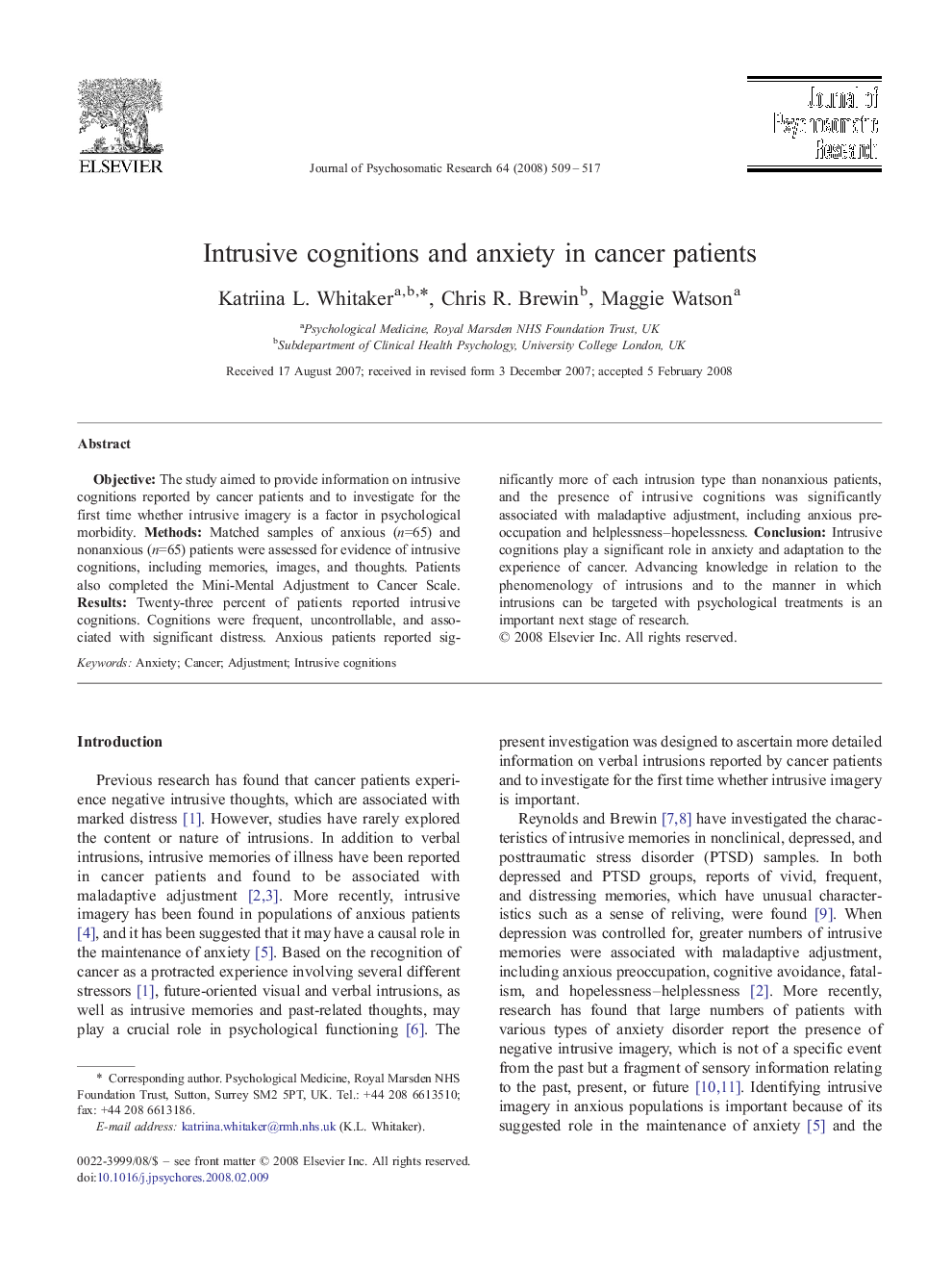| Article ID | Journal | Published Year | Pages | File Type |
|---|---|---|---|---|
| 951078 | Journal of Psychosomatic Research | 2008 | 9 Pages |
ObjectiveThe study aimed to provide information on intrusive cognitions reported by cancer patients and to investigate for the first time whether intrusive imagery is a factor in psychological morbidity.MethodsMatched samples of anxious (n=65) and nonanxious (n=65) patients were assessed for evidence of intrusive cognitions, including memories, images, and thoughts. Patients also completed the Mini-Mental Adjustment to Cancer Scale.ResultsTwenty-three percent of patients reported intrusive cognitions. Cognitions were frequent, uncontrollable, and associated with significant distress. Anxious patients reported significantly more of each intrusion type than nonanxious patients, and the presence of intrusive cognitions was significantly associated with maladaptive adjustment, including anxious preoccupation and helplessness–hopelessness.ConclusionIntrusive cognitions play a significant role in anxiety and adaptation to the experience of cancer. Advancing knowledge in relation to the phenomenology of intrusions and to the manner in which intrusions can be targeted with psychological treatments is an important next stage of research.
